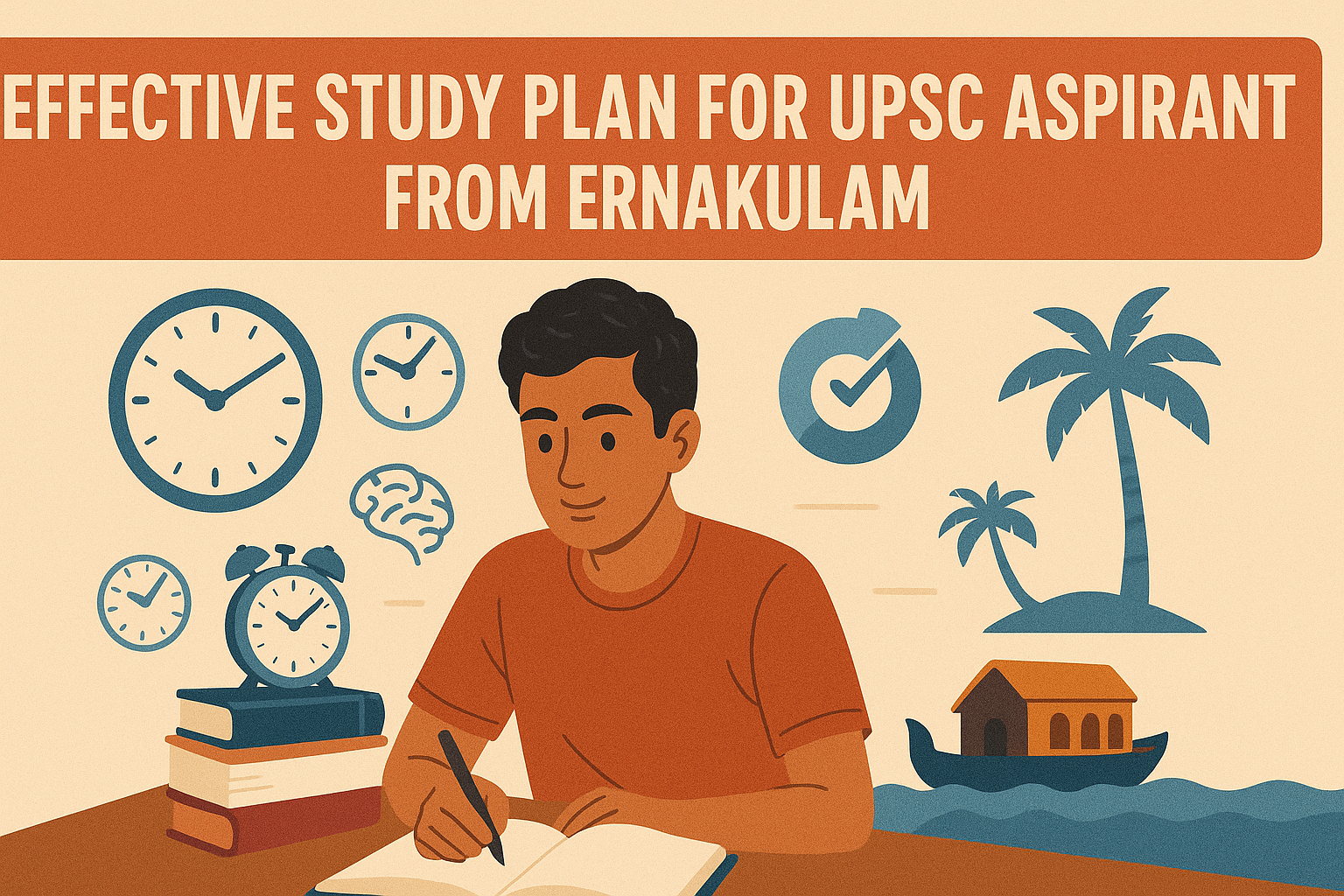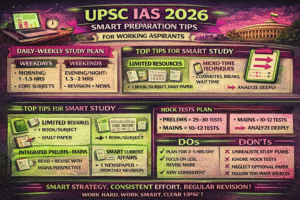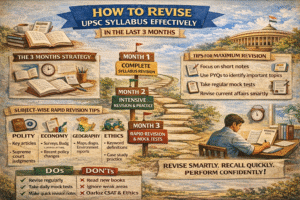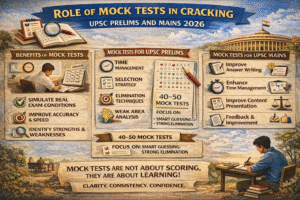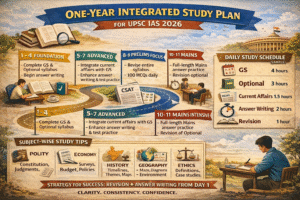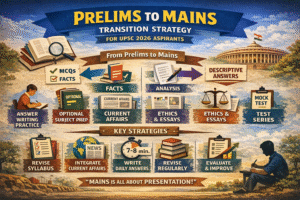Ernakulam has emerged as a major hub for UPSC Civil Service Coaching in Kerala, thanks to its experienced faculty, disciplined learning ecosystem, and affordable, high-quality institutions. This comprehensive guide provides a 12-month study plan designed specifically for aspirants preparing from Ernakulam — whether you’re a full-time student or working professional.
WHY A LOCATION-BASED PLAN MATTERS
Ernakulam offers some unique advantages:
Access to expert faculty for core and optional subjects (especially Public Administration and Geography).
Strong peer groups and libraries in areas like MG Road, Kaloor, and Vyttila.
Affordable, result-oriented UPSC coaching institutes with consistent mentorship.
By combining this ecosystem with a smart plan, aspirants can achieve maximum productivity and results.
CORE PRINCIPLES OF SUCCESSFUL PREPARATION
One book per subject + three revisions — Keep it simple and focused.
Weekly testing + analysis — Measure progress regularly.
Answer-writing early — Begin from Month 2 for Mains readiness.
Consistent current affairs — Daily news must link with GS syllabus.
Affordable structure + personal discipline — Choose institutes that give you accountability, not hype.
12-MONTH ROADMAP FOR UPSC PREPARATION
Months 1–3: Foundation and NCERT Phase
Read NCERTs (Class 6–12) for History, Polity, Geography, Economy, Environment, and Science & Tech.
Make one-page summaries for each chapter.
Start a Current Affairs habit — 45 minutes daily.
Begin CSAT practice 3 times a week.
Take one sectional Prelims test per week.
Write 2–3 short Mains answers every week.
Months 4–6: Core Concepts and First Testing Cycle
Study standard UPSC books:
Polity – Laxmikanth
Modern History – Spectrum
Geography – GC Leong + Atlas
Economy – Ramesh Singh or NCERT XI–XII
Environment – Shankar
Art & Culture – NCERT Fine Arts XI
Start Prelims test series (one sectional + one mixed test weekly).
Begin structured Mains answer writing (3 questions daily).
Finalize your optional subject — Ernakulam offers strong options in Geography & Public Administration.
Months 7–9: Prelims-Focused Phase + Optional Build
Attempt 2 GS Prelims tests weekly + 1 CSAT test fortnightly.
Focus on:
Environment Acts, Schemes, Polity Articles, Economic Indices, and Geography Mapping.
Continue Optional subject 6–8 hours weekly.
Write 1 Mains answer daily to retain structure.
Integrate Current Affairs with GS topics using editorials, PIB, and Yojana.
Months 10–12: Mains-Focused Phase (Post-Prelims)
Write one full-length GS paper per week.
Attempt 1 Essay weekly — alternate between society, economy, and governance topics.
Complete optional paper coverage and practice PYQs.
Begin Interview preparation — update your DAF, prepare Kerala and Ernakulam-based case studies (urban governance, Kochi Port, tourism, infrastructure).
WEEKLY STUDY PLAN (MODEL)
Monday–Friday
2 hours – Core Subject 1
2 hours – Core Subject 2
1 hour – Current Affairs
45 minutes – CSAT/Maps/Revision
Saturday
Prelims Mock Test (2 hours)
Analysis and error correction (1 hour)
3 Mains Questions practice
Sunday
3–4 hours Optional
Weekly revision and planning
TEST & REVISION STRATEGY
Prelims: Maintain 80% accuracy in mock tests. Analyze mistakes weekly.
Mains: Use structured answers — Introduction, Body, Way Forward.
CSAT: Practice reasoning and comprehension regularly.
CURRENT AFFAIRS INTEGRATION
Link daily news with the UPSC syllabus.
Use Kerala-specific examples for value addition:
Kochi Water Metro – Sustainable transport
Waste Management in Ernakulam – Local governance success
Coastal Protection Initiatives – Environment and Climate resilience
These local case studies enrich your GS-II, GS-III, and Ethics answers.
MINIMALIST BOOKLIST
Polity: M. Laxmikanth
History: Spectrum + NCERTs
Geography: GC Leong + Atlas + NCERTs
Economy: NCERTs + Budget/Economic Survey Gist
Environment: Shankar IAS Book
Science & Tech: NCERTs + Monthly Compilations
Art & Culture: NCERT + Handwritten Notes
Optional: Public Administration/Geography
Current Affairs: Newspaper + Monthly Magazine + PIB
THREE-STAGE REVISION STRATEGY
T–30 Days: Revise notes + solve mock tests.
T–14 Days: Focus on errors, maps, and quick facts.
T–7 Days: Only key data, current affairs, and static links.
For Mains, use the 10-10-10 Rule:
10 Years PYQs → 10 Model Answers → 10 Revisions.
HOW TO UTILIZE ERNAKULAM’S UPSC ECOSYSTEM
Join reputed academies offering structured courses, mentorship, and Affordable Fees.
Attend test discussions and mains evaluation sessions.
Form peer study groups at libraries and co-learning spaces.
Regularly meet mentors for performance tracking and feedback.
COMMON MISTAKES TO AVOID
Using too many resources without revision.
Ignoring CSAT till the end.
Postponing mock tests.
Unorganized notes.
Not analyzing mistakes after tests.
MONTHLY TARGET SNAPSHOT
| Month | Milestone |
|---|---|
| 1 | Started NCERT cycle; 2 sectional tests done |
| 3 | Completed NCERTs; began test series |
| 5 | Finalized optional subject; improved test accuracy |
| 6 | Finished core books; full mock test attempted |
| 8 | Reached 75% accuracy in Prelims; consistent CSAT |
| 9 | Completed 20+ mocks; optional progress strong |
| 10 | Mains answer-writing in full swing |
| 12 | 10 full-length Mains tests + Interview basics ready |
FREQUENTLY ASKED QUESTIONS
Q1. Can I clear UPSC in one year from Ernakulam?
Yes. With a structured study plan, regular mock tests, and local mentorship, one-year preparation is achievable.
Q2. Is coaching necessary?
Coaching helps you stay consistent and saves time by providing strategy, materials, and expert feedback.
Q3. What optional subjects are popular in Ernakulam?
Public Administration and Geography have strong faculty support locally.
Q4. How many mock tests are ideal?
At least 40–60 Prelims mocks, 8–10 Mains mocks, and regular CSAT practice papers.
CONCLUSION
An effective UPSC study plan is about discipline, testing, and revision — not endless reading. Ernakulam offers the perfect balance of expert coaching, affordable guidance, and a motivated peer network.
Stay consistent, revise regularly, and use local mentorship to keep your preparation on track. With the right plan, you can confidently aim for success in the UPSC Civil Services Examination.

